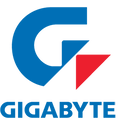Cerebras & G42 Break Ground on Condor Galaxy 3 - an 8 exaFLOPs AI Supercomputer
Cerebras Systems, the pioneer in accelerating generative AI, and G42, the Abu Dhabi-based leading technology holding group, today announced the build of Condor Galaxy 3 (CG-3), the third cluster of their constellation of AI supercomputers, the Condor Galaxy. Featuring 64 of Cerebras' newly announced CS-3 systems - all powered by the industry's fastest AI chip, the Wafer-Scale Engine 3 (WSE-3) - Condor Galaxy 3 will deliver 8 exaFLOPs of AI with 58 million AI-optimized cores. The Cerebras and G42 strategic partnership already delivered 8 exaFLOPs of AI supercomputing performance via Condor Galaxy 1 and Condor Galaxy 2, each amongst the largest AI supercomputers in the world. Located in Dallas, Texas, Condor Galaxy 3 brings the current total of the Condor Galaxy network to 16 exaFLOPs.
"With Condor Galaxy 3, we continue to achieve our joint vision of transforming the worldwide inventory of AI compute through the development of the world's largest and fastest AI supercomputers," said Kiril Evtimov, Group CTO of G42. "The existing Condor Galaxy network has trained some of the leading open-source models in the industry, with tens of thousands of downloads. By doubling the capacity to 16exaFLOPs, we look forward to seeing the next wave of innovation Condor Galaxy supercomputers can enable." At the heart of Condor Galaxy 3 are 64 Cerebras CS-3 Systems. Each CS-3 is powered by the new 4 trillion transistor, 900,000 AI core WSE-3. Manufactured at TSMC at the 5-nanometer node, the WSE-3 delivers twice the performance at the same power and for the same price as the previous generation part. Purpose built for training the industry's largest AI models, WSE-3 delivers an astounding 125 petaflops of peak AI performance per chip.
"With Condor Galaxy 3, we continue to achieve our joint vision of transforming the worldwide inventory of AI compute through the development of the world's largest and fastest AI supercomputers," said Kiril Evtimov, Group CTO of G42. "The existing Condor Galaxy network has trained some of the leading open-source models in the industry, with tens of thousands of downloads. By doubling the capacity to 16exaFLOPs, we look forward to seeing the next wave of innovation Condor Galaxy supercomputers can enable." At the heart of Condor Galaxy 3 are 64 Cerebras CS-3 Systems. Each CS-3 is powered by the new 4 trillion transistor, 900,000 AI core WSE-3. Manufactured at TSMC at the 5-nanometer node, the WSE-3 delivers twice the performance at the same power and for the same price as the previous generation part. Purpose built for training the industry's largest AI models, WSE-3 delivers an astounding 125 petaflops of peak AI performance per chip.




































































